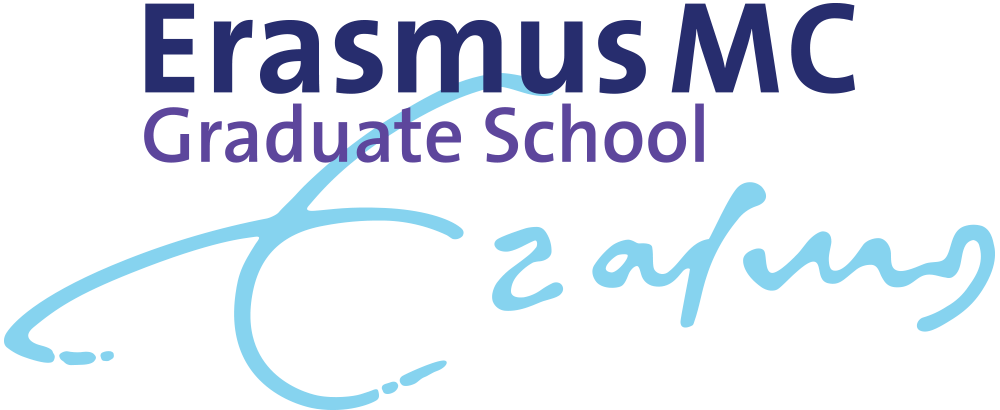Research Themes
- Intensive Care
- Oral and Maxillofacial Surgery
- Plastic, Reconstructive and Handsurgery
- Biostatistics
- Medical Psychology and Psychotherapy (MPP)
- Health Decision Sciences
- Public Health
- Genetic Epidemiology
- Clinical Epidemiology
- Medical Informatics
- Musculoskeletal Science
- Rehabilitation Medicine
- Surgical Research
- Gastroenterology & Hepatology
- Transplantation Medicine
- Urology
- Pediatric Research
- Gynaecology and Gynaecologic Oncology
- Medical Oncology
- Haemato-Oncology
- Cardiovascular research
- Endocrinology, Neuro-Endocrine Immunology, and Clinical and Medical Immunology
- Imaging Studies
Periconception and Prenatal Medicine, Obstetrics and Reproduction
Prof. dr. R.P.M. Steegers-Theunissen (contact: r.steegers@erasmusmc.nl), Prof. dr. J.S.E. Laven, Prof. dr. E.A.P. Steegers
Can you identify the impact of medical, lifestyle and social determinantsinnovative ehealth and blended lifestyle care interventions to improve periconception parental health, fertility and maternal pregnancy and neonatal outcomes?
The genes of the child and placenta are derived from the gametes of both parents. Therefore, the (epi)genetic background together with environmental exposures of the mother to be and father to be, such as nutrition, lifestyle, occupational exposure, medication, societal factors and health, determine the quality of the gametes, fertilisation and maternal and neonatal pregnancy course and outcome. The environment of the conceptus (embryo and fetus) is formed by the mother. The genes of the conceptus and maternal environmental exposures are both involved in embryogenesis and placentation in early pregnancy as well as in the prenatal programming, growth and development.
Focus: Our research is directed on the periconception period and early pregnancy. The phenotypes of interest are periconception and embryonic health, subfertility, congenital malformations, miscarriages, pre-eclampsia, diabetes gravidarum, preterm birth, fetal growth restriction and low birth weight, first thousand days.
Studies: To investigate this topic, we started in November 2009 the Rotterdam periconception cohort study, in which more than 3000 pregnancies are monitored from the periconception period until 1 year after delivery. Unique are the serial 3D ultrasound measurements of the embryonic structures and placenta in the first 12 weeks of pregnancy which are investigated using virtual reality techniques (I-Wall, VR Desktop system) and V-scope software in association with exposures and long term health outcome parameters. Ultrasound data is also being analysed using artificial intelligence, together with the Biomedical Imaging Group and TU Delft (Convergence project). Data of subcohorts, including lifestyle care interventions, embedded in this cohort are available on preimplantation embryo growth and development (timelapse), embryonic and fetal brain development, and placental (vascular) development throughout pregnancy.
Determinants: General characteristics, serial 3D ultrasound measurements of the embryo, brain, placenta, yolk sac, and embryonic and fetal organs, nutrition, lifestyle, occupational exposures, biomarkers of nutrients, oxidative stress, and hormones in blood, – cord blood, – chorionic villous samples, – amniotic fluid, – placental tissue, – semen, and follicular fluids (obtained via in vitro fertilisation and pre-implantation genetic screening techniques). All materials and isolated DNA are available for sophisticated (nutri)genomics, epigenetics, metabolomic and proteomic techniques.
Relevance: The importance of this collaborative research at the department of Obstetrics and Gynaecology is the identification of modifiable risk factors and underlying epigenetic mechanisms. This may be used in future preconception counselling.
Research activities: Students who are participating in our research themes will participate in all phases of the studies; the design of the study, the recruitment and clinical data sampling, the performing of 3D ultrasound measurements at the outpatient clinic and using the Virtual Reality techniques, and the data analysis. This research is part of the convergence between Erasmus MC, TU Delft, and EUR, in particular the flagship My Digital Twin. The final aim is the writing of a full paper.
Main research themes:
- Lifestyle (care), including dietary patterns, processed foods, smoking, alcohol consumption, etc.
- Periconception parental and (preimplantation)embryonic health conditions, including ageing processes and the role of one carbon metabolism and the biological clock
- Ultrasound examinations and Virtual reality
- Subfertility: causes, treatment, prediction, and prevention
- Congenital malformations, causes, treatment, prediction, and prevention
- Maternal and neonatal complications, including embryonic- placental and fetal growth restriction, causes, treatment, prediction, and prevention.
 Theme 1: Periconception parental and embryonic health
Theme 1: Periconception parental and embryonic health
Periconception health of the couple and the health of the embryo and placenta are new themes for research with the aim to further improve preconception and obstetrical care and treatment. The focus is on poor modifiable behaviors such as nutrition and lifestyle of the couple for which 2 randomised controlled intervention studies with the mHealth tool www,.Slimmer Zwanger.nl on the smart phone are being conducted. Outcomes are the improvement of nutrition and lifestyle and clinical endpoints are the chance of pregnancy and embryo quality, growth and development in the subfertile IVF population. In the general population additional outcomes are the reduction of congenital malformations, premature birth and fetal growth restriction.
Research questions:
- What are the effects of preconception lifestyle intervention of the m-health tool www.SlimmerZwanger.nl in the woman and her partner on:
- nutrition and lifestyle
- pregnancy chance
- embryo quality, growth and development throughout pregnancy
- the occurrence of congenital malformations, preterm birth and fetal growth restriction.
- What is the influence of periconception health conditions of parents-to be on (preimplantation) embryonic (in particular brain) and placental (vascular) health using modern statistics, three-dimensional ultrasound virtual reality techniques and Artificial Intelligence?
- Does TESE-ICSI compared with normal ICSI or spontaneous pregnancies affect embryonic growth and development parameters, measured with 3D ultrasound and Virtual Reality techniques, and pregnancy outcome?
- What are the effects of synthetic vitamins on (preimplantation) embryo, fetal and placental (vascular) development?
- What are the effects of antidepressant medication use during and before pregnancy on (preimplantation) embryo development?
 Theme 2: Subfertility
Theme 2: Subfertility
Subfertility is an increasing problem and affects around 15% of the reproductive population. Nutrition and lifestyle factors play a role in the fertilization process. In the Predict Study subfertile couples undergoing fertility treatment are included, where lifestyle and environmental determinants are assessed by questionnaires and biomarkers measured in blood, follicle fluid and seminal plasma. Outcomes are: semen parameters, number of oocytes, embryo quality, (ongoing) pregnancy, and DNA methylation patterns in several tissues. Interventions on lifestyle factors of the couple (nutrition, smoking, alcohol, weight reduction) using sophisticated tools are performed as well. The effects of these interventions on fertility outcome and epigenetic patterns are evaluated. General aim: To unravel gene-environment interactions and underlying epigenetic mechanisms in the pathogenesis and prevention of subfertility in human.
Research questions:
- What are the effects of preconception health conditions, lifestyles, socioeconomic status, sleep (including interventions; M-health tool www.SlimmerZwanger.nl), environmental exposures and genes on:
- the causes of subfertility
- the fertility parameters: semen, oocyte and endometrium quality
- Prediction of fertility outcome parameters with the Rotterdam Reproductive Risk Score (R3-score).
 Theme 3: Congenital Malformations
Theme 3: Congenital Malformations
Every year 17 million children are born with a congenital malformation worldwide, of which congenital heart defects, cleft lip and/or palate, neural tube defects (spina bifida, anencephaly), and Down syndrome form the largest groups. Genetic factors and environmental exposures in the periconception period play a significant role in the pathogenesis and prevention of such malformations. Recently it has been observed that the birth prevalence rate of congenital malformations is extremely high in several parts of Rotterdam. Therefore, we conducted large scale case-control family studies on the previously mentioned congenital malformations (SPINA BIFIDA Study, EUROCRAN, HAVEN Study). Furthermore, the Predict Study also includes pregnant women carrying a fetus with one of these malformations. Lifestyle and environmental determinants are collected by questionnaires and biomarkers (focus on periconception period) measured in blood, coelomic and amniotic fluids. Outcomes: pregnancies with one of the 4 above mentioned congenital malformations, DNA methylation patterns in several tissues.
General aim: To explore gene-environment interactions and underlying epigenetic mechanisms in the pathogenesis and prevention of 4 major congenital malformations in humans.
Research questions:
- What are the effects of periconception parental health conditions, lifestyle (intervention; M-health tool www.SlimmerZwanger.nl), environmental exposures and genes on:
- the occurrence of congenital malformations, with special interest for the brain, determined by ultrasound examination, virtual reality and artificial intelligence?
- the DNA methylation patterns in offspring and in several tissues?
- What is the influence of the grandparent health on the risk of congenital malformations in their children?
- Prediction of the risk of the 4 congenital malformations with the Rotterdam Reproductive Risk Score (R3-score).
 Theme 4: Maternal pregnancy and neonatal complications
Theme 4: Maternal pregnancy and neonatal complications
Last decade the perinatal mortality and morbidity is significantly increased in the largest urban cities in the Netherlands, in particular in Rotterdam. Evidence is increasing that nutrition and lifestyle factors, in the preconception period of both parents-to-be and in early pregnancy, herewith play a significant role. Therefore, we are conducting the Rotterdam Periconception cohort ( Predict Study) among normal and high risk couples in which lifestyle and environmental exposures are collected by questionnaires and biomarkers are measured in stored blood. Outcome parameters are: miscarriage, embryonic and fetal growth (in first second and third trimester of pregnancy), placental related pregnancy complications and birth weight. Interventions on lifestyle factors of the couple (nutrition, smoking, alcohol, weight reduction) using sophisticated tools will be initiated as well. The effects of preconceptional interventions on pregnancy course and outcome will be evaluated.
General aim: To identify periconception lifestyle factors, paternal and maternal health conditions and epigenetic mechanisms on maternal pregnancy and neonatal complications.
Research questions:
- What are the effects of periconception lifestyle (interventions; M-health tool www.SlimmerZwanger.nl), environmental exposures and genes on:
- first trimester growth (embryo, fetus, yolk sac, placenta) determined by repeated ultrasound measurements?
- pregnancy complications (miscarriage, placental related vascular diseases, IUGR, low birth weight etc)?
- the DNA methylation patterns in offspring and in placental tissue?
- Do maternal and paternal cardiovascular risk factors, such as high blood pressure and obesity, have an adverse effect on embryonic, placental health parameters, measured with 3D ultrasound and Virtual Reality techniques, and pregnancy outcome?
- What is the influence of the grandparent health on the risk of maternal and perinatal complications in their (grand)children?
- Prediction of maternal pregnancy and neonatal complications with the Rotterdam Reproductive Risk Score (R3).
Because the research questions develop quickly over time, we will offer students the opportunity to make an appointment to explore their research interests and discuss corresponding possibilities for a master thesis within one of these research themes.

